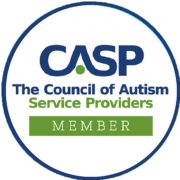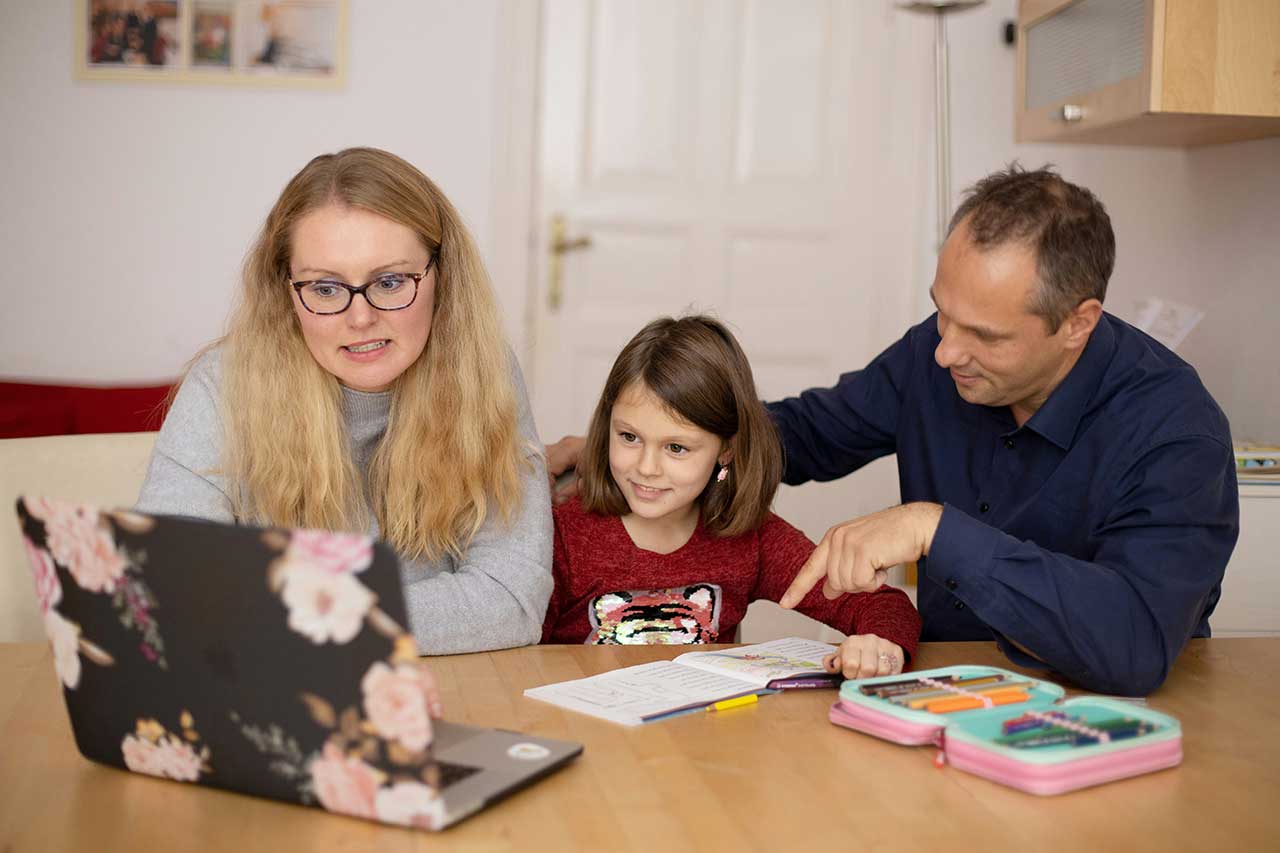Can You Get ABA Therapy Without an Autism Diagnosis?
ABA therapy is such a well-known treatment for autistic learners that it is often assumed that it is only for people with autism. But Applied Behavior Analysis (ABA) can be an effective therapeutic treatment for people with a number of different diagnoses, as well as for those who have symptoms of a developmental or behavioral challenge but have not been diagnosed.
In this article, we’ll explore if you can get ABA therapy without an autism diagnosis and answer several additional questions along the way, including:
- What diagnosis do you need for ABA?
- What does undiagnosed autism look like, and how can ABA therapy help?
- Is it hard to get an autism diagnosis?
- Can you receive ABA therapy without a diagnosis?

Who Qualifies for ABA Therapy?
Is ABA therapy only for autism? As we have established, ABA has become synonymous with autism, but autistic individuals are not the only benefactors. Far from it! Before we delve deeper into ABA therapy for autism, we’ll quickly share that ABA therapy is known to be effective for some people – children and/or adults – who have:
- Anger issues
- Anxiety disorders
- Attention Deficit Hyperactivity Disorder (ADHD) and other behavioral disorders
- Autism Spectrum Disorder (ASD)
- Borderline personality disorder
- Dementia
- Developmental delays
- Eating disorders
- Intellectual disabilities
- Learning disabilities
- Obsessive-Compulsive Disorder (OCD)
- Oppositional defiant disorder
- Panic disorder
- Post-traumatic stress disorder
- Substance abuse disorders
- Traumatic brain injury
How Does Autism Present (and How Can ABA Therapy Help?)
Now let’s consider some common ways in which autism manifests and see how ABA therapy can be beneficial. Of course, not all autistic learners will exhibit these traits and others will present some that are not listed.
Language Delays & Social Communication Challenges
Compared to their neurotypical peers, many autistic learners experience a delay of spoken language development and/or have difficulties understanding and using verbal and non-verbal communication, such as gestures, facial expressions, and tone of voice, and in initiating and sustaining conversations.
ABA therapy helps individuals communicate via their preferred method, facilitating more effective and meaningful two-way interactions. Methods might include vocal language, sign language, non-verbal expression, or use of technology, such as AAC devices.
Social Interaction Difficulties & Restricted Interests
Autistic learners frequently have challenges in making and maintaining friendships, understanding social cues, and engaging in social interactions. In some environments, the learner may be withdrawn. Additionally, people with autism often have intense, focused interests in specific topics or activities to the exclusion of other areas.
ABA therapy empowers individuals to learn and practice social skills. Augmenting social skills can help young people and adults better understand how to engage in different social situations, help them to make and keep new friends, and discover new interests and hobbies.
Sensory Sensitivities & Repetitive Behaviors
Individuals on the autism spectrum tend to showcase over- or under-reactivity to sensory stimuli, such as sounds, lights, textures, or smells. They may also engage in repetitive movements or actions, such as hand-flapping, rocking, or lining up objects.
ABA therapy can foster coping and relaxation techniques, as well as self-advocacy skills, to manage stress and discomfort, reduce anxiety, and enhance the ability to tolerate a variety of situations. This is done through gradual exposure to challenging scenarios or stimuli in a controlled and supportive environment.
Behavioral Dysregulation
Some autistic learners have frequent meltdowns or tantrums, often triggered by sensory overload, unexpected changes in routine, or not being able to effectively communicate their feelings (which is why functional communication teaching is such an important intervention early in treatment). It may also manifest as self-injurious behaviors, such as head-banging or biting, when the individual is overwhelmed or unable to communicate their needs. Additionally, behavioral dysregulation can include difficulty with impulse control, leading to disruptive behaviors in structured settings like classrooms or social gatherings.
With ABA therapy, autistic learners may decrease the incidence of challenging, impulsive or disruptive behaviors by helping them recognize their emotions, develop coping strategies, and build their tolerance and response to a variety of situations. This is done through gradual exposure to challenging scenarios or stimuli in a controlled and supportive environment, while teaching replacement behaviors and self-advocacy skills.

Problem-Solving Skills
Problem-solving challenges in autistic learners can present as difficulty in understanding and following multi-step instructions, leading to frustration and incomplete tasks. Autistic learners may also find it challenging to apply learned skills in new contexts, requiring additional support to generalize problem-solving strategies across different settings and scenarios.
ABA therapy helps autistic learners break down complex tasks into smaller, manageable steps. Through positive reinforcement, ABA encourages learners to persist in finding solutions, rewarding their efforts and progress, which builds confidence and resilience. Additionally, ABA therapy provides structured opportunities for learners to practice problem-solving in various contexts, helping them generalize these skills and apply them to different situations in daily life.
Challenges with Daily Living Skills
Autistic learners may have challenges with daily living skills such as personal hygiene, dressing, and cooking due to difficulties with motor coordination, sequencing multi-step tasks, or sensory sensitivities that make these activities particularly distressing, leading to avoidance or resistance.
ABA therapy promotes the acquisition of daily living skills. Learning and practicing these and other essential skills leads to greater independence, increased confidence, and greater self-esteem.
Getting an Autism Diagnosis
Getting an autism diagnosis can be a helpful step in the right direction from an insurance point of view and a treatment plan perspective.
“Why is it so hard to get an autism diagnosis?” This is a question we unfortunately hear often. Obtaining an autism diagnosis can be challenging due to several factors. First, autism is a spectrum! It presents with a wide range of symptoms and at varying levels of intensity, making it difficult in some cases to identify and diagnose – especially in individuals with milder or atypical presentations. Misconceptions and lack of awareness about autism can also lead to underdiagnosis or misdiagnosis.
For many families, a lack of insurance coverage for diagnostic services can be cost-prohibitive. While we cannot change the parameters of your insurance coverage, at A Bridge to Achievement we can promise access to dedicated specialists and therapeutic services of the highest caliber.
It doesn’t have to be hard to get a diagnosis if you begin your journey with the right professionals in your corner. At ABtA, we focus exclusively on the autism community and offer ABA therapy only to autistic learners. We offer diagnostic autism assessments at our offices, and appointments are typically available within a couple weeks of receiving a request for services in Charlotte, NC and a few months in Winston-Salem. You can self-refer to our practice through our website, or get a referral from a healthcare provider.
When to Seek an Autism Assessment
“When is it too late to diagnose autism?” This is also a question we get regularly and, fortunately, the answer is: never! Although, research does show that the earlier someone can be assessed and diagnosed, the better. Early intervention promotes a number of essential skills at a time when neural pathways are being established and strengthened – skills that may be significantly enhanced when modeled and reinforced through ABA therapy. But don’t let age keep you from seeking a diagnosis or therapeutic support – it can be life-changing.

ABA Therapy Without a Diagnosis
Some providers offer ABA therapy to clients who don’t have (or don’t want) a formal diagnosis for a specific condition or disorder, however, insurance typically will not cover ABA without a diagnosis, making it quite expensive and cost-prohibitive to obtain these services. If you do not have a diagnosis but think ABA therapy may be beneficial for you or a loved one, consider:
- Researching providers – contact ABA therapy providers to ask if they accept clients without a formal diagnosis.
- Consulting with professionals – reach out to therapists, psychologists, or pediatricians to discuss the potential benefits of ABA therapy for your situation.
- Scheduling a consultation – make an appointment for an initial consultation or assessment with an ABA provider to determine specific needs and goals.
- Discussing payment options – inquire about insurance coverage, payment plans, and any financial assistance programs available for ABA therapy without a diagnosis.
- Creating a personalized plan – work with the ABA provider to develop a customized therapy plan tailored to the individual’s needs and objectives.
- Monitoring progress – regularly review and adjust the therapy plan as needed to ensure it continues to meet the individual’s needs effectively.
ABA Therapy Services at A Bridge to Achievement
At A Bridge to Achievement, we engage ages 3 to 21 with ABA therapy programs that are equal parts fun and empowering. Programming is available across three locations in North Carolina – Pineville and University in Charlotte, and in Winston-Salem.
- Building Bridges helps young learners get Kindergarten ready.
- BRIDGES is a life skills program for tweens, teens, young adults and, in some cases, adults. (Not available at our Pineville location.)
- Social Skills Groups are for kids, teenagers, and young adults who want to practice social competencies and deepen relationships in a supportive, structured setting.
Ready to get started with the assessment process and develop a therapeutic plan? Submit a request for services or feel free to connect with us with questions. Support starts here!





